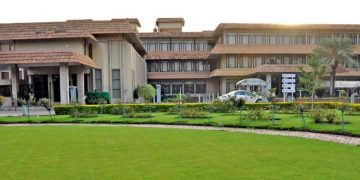Celine Dion has revealed that she has been diagnosed with stiff-person syndrome, a rare neurological disorder that affects about 1 or 2 people per million, according to Johns Hopkins Medicine.
The disease “is characterized by fluctuating muscle rigidity in the trunk and limbs and a heightened sensitivity to stimuli such as noise, touch, and emotional distress, which can set off muscle spasms,” according to the National Institute of Neurological Disorders and Stroke (NINDS).
View this post on Instagram
The 54-year-old singer addressed her fans in a tearful Instagram post on Thursday as she revealed it has forced her to postpone her European tour.
She penned: ‘Hello everyone, I’m sorry it’s taken me so long to reach out to you. I miss you all so much and can’t wait to be on stage talking to you in person.
‘As you know, I’ve always been an open book and I wasn’t ready to say anything before but I’m ready now.
‘I’ve been dealing with problems with my health for a long time, and it has been really difficult for me to face my challenges and to talk about everything that I’ve been going through.
‘Recently, I’ve been diagnosed with a very rare neurological disorder called the stiff person syndrome, which affects one in a million people.
‘While we’re still learning about this rare condition, we now know this is what’s been causing all the spasms I’ve been having.’
The syndrome occurs about twice as often in women as in men, according to NINDS, though occurs in very small numbers overall. The cause isn’t yet understood, but research suggests it may be an autoimmune issue in the brain and spinal cord.
Symptoms of stiff-person syndrome can take several months to a few years to develop. Some patients remain stable for years; others slowly worsen.
Symptoms include pain, muscle stiffness and aching.
Early on, stiffness may come and go but eventually, the stiffness remains constant. Over time, leg muscles become stiff and more muscles throughout your body become stiff including the arms and even the face.
Treatments for SPS involve anti-anxiety drugs, muscle relaxants, anti-convulsants, and pain relievers, which improve the symptoms, but there is no cure.


































